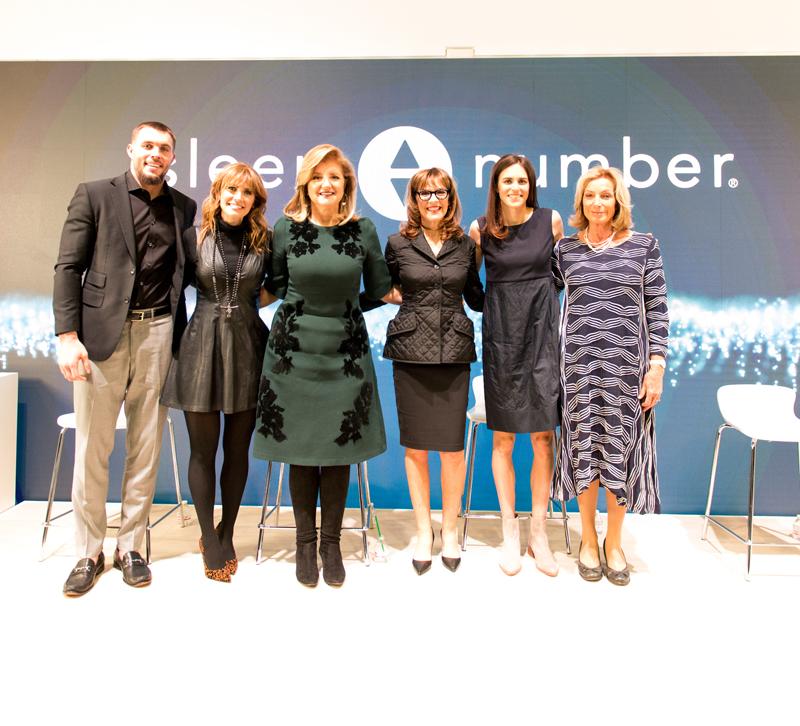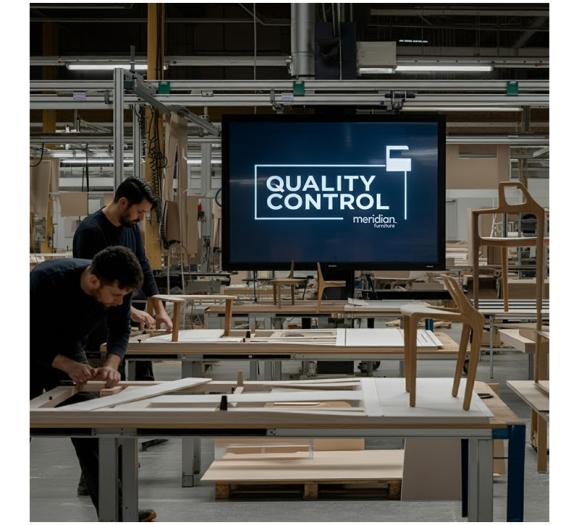Sleep Number, a sleep innovation leader, convened a panel of elite athletes, sleep experts and influencers at the Consumer Electronics Show (CES) to highlight the connection between sleep, technology and performance and share what the future holds for sleep innovation. Panelists discussed the science of sleep, the connection between sleep, well-being and recovery, and provided personal insights into the benefits of tracking sleep and its direct correlation to performance.
In other news at the show, Sleep Number partnered with Arianna Huffington’s Thrive Global, a behavior change company helping people improve their wellness and performance. With Sleep Number’s leadership in sleep science and Thrive Global’s platform, which reaches more than 30 million people per month, the partnership is expected to amplify the importance and impact of quality sleep on physical, mental and emotional well-being. As the official Sleep and Wellness partner for Thrive Global, Sleep Number will share content and comprehensive sleep insights to help people improve their sleep and their lives.
Hosted by Shelly Ibach, President and Chief Executive of Sleep Number, and moderated by Alexis Glick, Chief Executive of GENYOUth, the panel featured Huffington, author of The Sleep Revolution: Transforming Your Life One Night at a Time, along with Harrison Smith, Minnesota Vikings’ safety and four-time Pro Bowler; Gwen Jorgensen, olympic gold medalist and triathlete; and Dr. Eve VanCauter, circadian rhythm expert at the University of Chicago’s Department of Medicine.
“Science has shown us that humans in the 21st century are living a lifestyle in which our body is not prepared; up all night, trying to stimulate itself with stimulants and activities,” Dr. VanCauter reported. “Our stress response systems are responding to sleep deprivation or poor sleep in a way that is not appropriate. We are not wired to be awake in the dark.”
“When I sleep well, I can see a difference in how I play on the field. I can think faster, respond more quickly and I’m able to compete at the highest level each day,” said Smith. “Since I got my bed, the Sleep Number 360 smart bed has become one of the most important tools in my training – letting me tap into my sleep data to perform at my peak and recover more quickly.”
“We are all athletes in our own way, in our own profession,” Huffington noted. “We all need to refuel and recharge. One way to improve the performance of companies is to make the sizable connection between the well-being of employees and the bottom line.”
Now in its second year as the official sleep and wellness partner of the National Football League, Sleep Number knows that proven quality sleep can be a game-changer according to Ibach. Currently, more than 1,800 of the league’s players have invested in the Sleep Number 360 smart bed. Every team is represented, with about 75 percent of each teams’ active roster now using SleepIQ data and insights to help them improve their sleep quality and strengthen their recovery.
“Sleep is at the center of a healthy life,” she said. “Whether you’re a business leader, teenager, busy parent or a world-class athlete, quality sleep helps you play better, think better and live better – improving your mood, mental acuity, physical performance and overall well-being.”
Sleep Number’s proprietary SleepIQ technology, which is integrated into every bed, measures over 8.5 billion full-body biometric data points every night. The bed uses the sleeper’s individual data, including movement, breathing rates, heartbeat and sleep habits, to automatically adjust the bed’s firmness to deliver proven quality sleep.
As Jorgensen said, “I can’t perform without being a very well-oiled machine and making sure that everything is healthy. I write down how I slept the previous night, how many hours I slept and how the quality of sleep was, and my resting heart rate, which is something I can get from the SleepIQ app. I really noticed a big correlation between my sleep quality, my resting heart rate, and if I’m getting sick or if I’m staying healthy or if I’m overtraining or doing the appropriate amount of training. Those are things that have allowed me to push myself…I prevent myself from getting sick and injured.”
“We are at the beginning, the forefront of a digital health revolution,” Ibach predicted. “Today you can learn vital metrics and the bed is using advanced analytics and an algorithm to give you all of the information, and to determine when your vital metrics are outside of the norm. In the future, our 360 smart bed will be smart enough to be able to predict health issues and identify things like sleep apnea or restless leg syndrome, or even the onset of a heart attack or stroke.”







